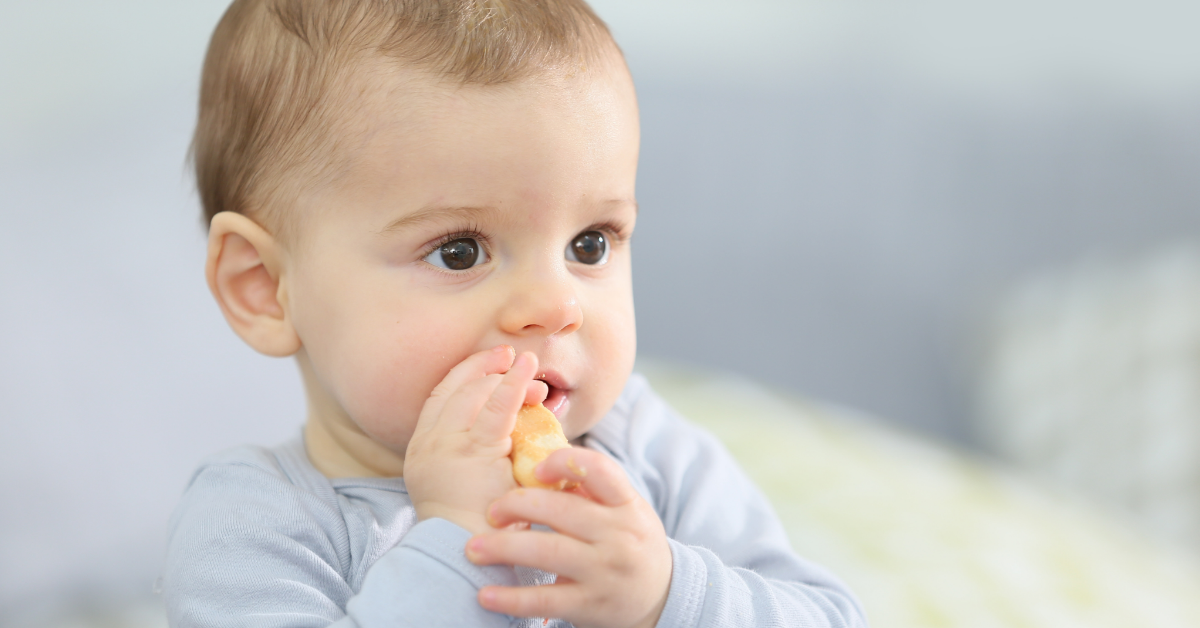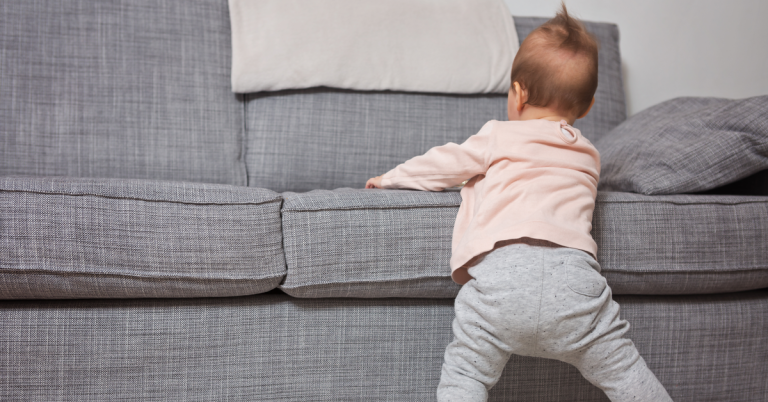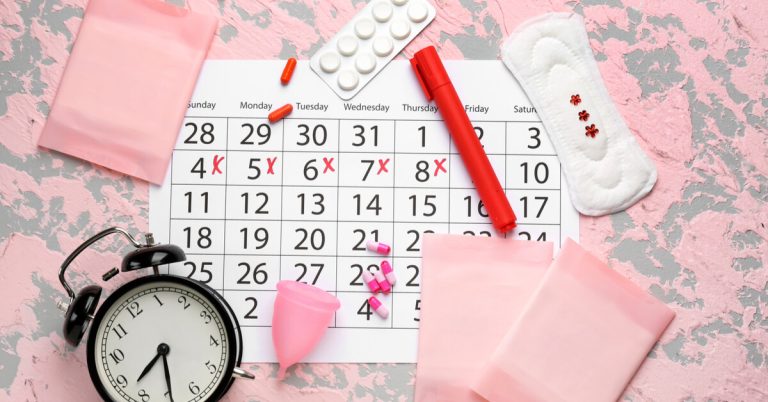What Can Your 8-Month-Old Baby Do?
- Can put some weight on his feet when standing.
- Can pass an object from one hand to the other.
- Can seek and find a toy and take it.
- Turns towards sounds.
- May be able to stand up while holding on to something or someone.
- May resist giving away his toys.
- May struggle to get a toy that is out of reach.
- Will love it when you play peekaboo.
- Is gradually learning the pincer grasp and may try holding things between thumb and index finger.
- May start waving “hello” and “goodbye” to people coming and going.
8-Month-Old Baby Nutrition
By eight months, most babies love and can eat finger foods as they slowly develop their pincer grasp. This transition usually happens suddenly. Once babies discover they can put food in their mouths independently, the number of foods they deftly pop into their mouths increases rapidly. Many babies start by chewing on pieces of bread or crackers, which are relatively large and easy to hold in their little fists. Eating the last chunk in their hand may cause some trouble and protest, and your baby may cry or drop it on the floor and ask for a new one. 🙂
Good food choices include whole-wheat bread or toast, small cheese sticks, ripe banana, pear, peach and apricot, steamed carrots, potatoes, broccoli, meatballs, and well-boiled egg yolks or whole eggs. You can cook the veggies until they are soft, and you can crush them with your fingers. Cut the vegetables into sticks the size of your finger, so your baby can hold them easily. Place a few pieces on an unbreakable suction plate or your baby’s highchair tray and replenish as he eats. And don’t worry, your baby may play with his food or throw it while he explores the different structures, smells, and tastes. This way of weaning your baby is called Baby-Led Weaning.
Learning to handle finger foods is usually the first step towards more freedom at the dinner table. Over time, your baby can participate in the family meals you prepare. Ensure to avoid added salt and sugar, milk, cream, and bee products until the suitable age.
Measures at 8-Month-Old
| Gender | Weight (kg) | Length (cm) |
| Boy | 8.5 | 70.6 |
| Girl | 8.2 | 68.7 |
Baby Sleep at 8-Month-Old
You need to pay attention to the safety of your baby’s bed. Lower the crib to the lowest setting once your baby can sit up without assistance, as your baby may start pulling himself up, which forms a falling and suffocation hazard.
Should My 8-Month-Old Be Crawling?
It is perfectly okay if your baby is not crawling at eight months. Some babies will never even crawl but will rather wiggle, shuffle, or roll. If your baby cannot do any of these at one year old, or you are worried in one way or another, we recommend you consult your paediatrician.
Play at 8-Month-Old

Once your baby can sit on his own, he will start playing with the toys you put in front of him. He can hold, play with, and choose toys by himself. For this stage of development, soft toys are ideal. Lots of tummy time is still crucial. You can also play games to encourage your baby to start crawling, like creating an obstacle course with a tunnel or placing his favourite toys just out of reach.
Shopping Advice – What to Buy?
As your baby may start crawling, it is important to babyproof your house. Cover your electricity sockets and multi-plug adapters. Apply baby locks to your drawers and cupboards, and corner and edge guards to sharp corners and edges. Shield off dangerous areas like stairs or the kitchen with a safety gate. It’s a good idea to get on your hands and knees and crawl through the house yourself, to see what obstacles your little one may encounter on the way.
It’s Your Turn Now – Write a Comment
How are you raising your 8-month-old baby? What challenges did you encounter? How did you overcome them? We welcome your comments to help and support other caregivers.
Don’t Forget to Share!
Don’t forget to share our 8-month-old baby development article so other caregivers and expectant parents can read and learn!







